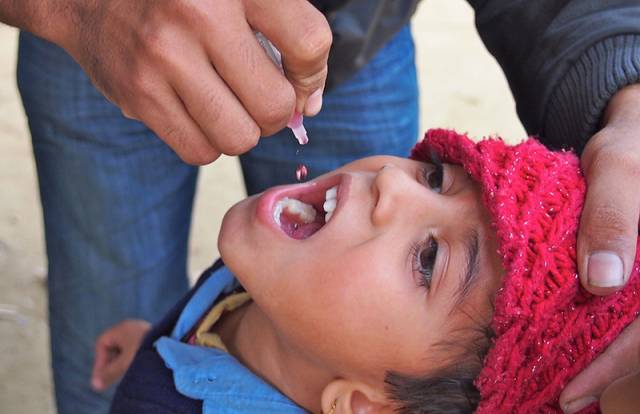You are here
The Journey toward Polio Eradication
Sixty years ago few diseases struck as much fear in parents and children as polio. I know because my mother, who is now 95, was infected with polio in 1952 at the height of the epidemic.
It’s difficult for us to imagine in the United States today, but the journey toward polio eradication has been challenging. Success is undeniable, however, as polio cases have dropped from more than 350,000 in 1988 to just five cases so far in 2017. Only three remaining polio endemic countries remain—Afghanistan, Nigeria and Pakistan. The Global Polio Eradication Initiative is a public-private partnership led by national governments with five partners—the World Health Organization (WHO), Rotary International, the Centers for Disease Control and Prevention (CDC), the United Nations Children’s Fund (UNICEF) and the Bill & Melinda Gates Foundation. Its goal is to eradicate polio worldwide.
This Saturday, I have the honor of speaking at Rotary International’s Presidential Peace Conference in Atlanta. My panel will discuss the work to eradicate polio and how what’s been learned in that fight can be applied to other disease burdens, from infectious to chronic diseases.
The CDC Foundation is pleased to support a portion of the work to eradicate polio. In this role, we host and support the Bob Keegan Polio Eradication Heroes Fund.
This fund recognizes health workers and volunteers who have incurred serious injury or lost their lives as a direct consequence of their participation in polio eradication activities. The families of the workers, who have been the victims of automobile crashes, military conflicts and other life-threatening events, receive a certificate recognizing the victim’s heroic commitment to polio eradication and a cash tribute.
The fund was established in June 2000 in partnership with major polio eradication partners. Robert “Bob” Keegan was the first contributor, donating the award money he received when he was recognized with CDC’s prestigious William C. Watson Jr. Medal of Excellence. Keegan remained the fund’s strongest advocate. When he retired from CDC in May 2007, he completed a bike ride across the United States from Florence, Oregon, to Yorktown, Virginia—4,165 miles—to raise awareness and resources for the polio eradication initiatives of the CDC Foundation and Rotary International. When Keegan passed away in January 2012, the CDC Foundation renamed this fund in his honor to express our gratitude for his extraordinary leadership and dedication.
We are grateful to Rotary International, CDC and partners and individuals across the globe, like Bob Keegan, who have come together to eradicate polio. When we work together, we can do so much more than we can individually to tackle health-related burdens.

